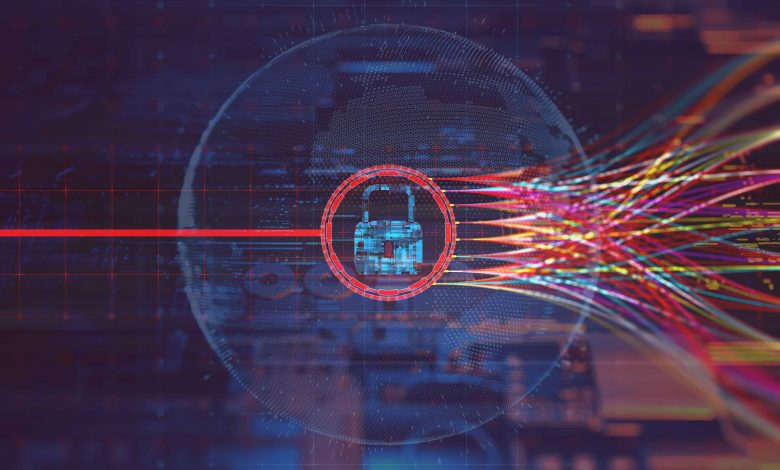How to increase the security of your VPN

VPNs can have diverse significance for different people. But this is solely based on usage. For some, VPNs allow them to access the web from multiple virtual locations. And to others, it offers a reliable technology to protect identity or even encrypt confidential information that they send over the internet.
Typically, VPNs offer a secure way to surf the internet without fears of losing identification, location or any other sensitive data. As the name implies (VPN: virtual private network), it’s simply a way to protect data and use the internet privately. When you connect to the internet via a VPN provider, you enter from a new gateway server that hides your actual IP address and assigns a new IP. Your internet traffic is then routed and encapsulated through a private and secure VPN tunnel over public networks.
However, all VPNs do not offer the same level of speed, encryption, security and/or privacy. Typically, VPNs with a stronger encryption provide a slower connection. So, in attempts to achieve a faster connection, many VPN providers end up using weaker encryption methods. Strong VPN encryption types may include OpenVPN, SSL (Secure Sockets Layer), SSTP (Secure Socket Tunneling Protocol), IKEv2/IPSec (Internet Key Exchange version 2) and L2TP/IPSec (Layer 2 Tunneling Protocol). And encryption methods like PPTP (Point to Point Tunneling Protocol) are much weaker than the ones above.
In this guide, we will be exploring different methods and practices that can boost the security of your VPN. You’ll find these methods useful if you don’t want to ever lose your passwords, banking details, messages, browsing history, identity etc. to a third party.
Let’s get right in!
Ensure kill switch is enabled
When you’re using a VPN that loses connection, your device immediately switches back to your real IP address. But with a VPN kill switch, your internet connection is shut down and any potential IP leak is terminated. Some VPN providers have a built-in kill switch. So, we highly recommend that you enable the feature in the settings area. However, you can also use third-party kill switch tools that can work with any VPN provider. They close selected apps when your VPN loses connection and restarts them when connection is back up.
Use a VPN provider with DNS leak protection
DNS (domain name system) is a service that links IP addresses with the URLs user visits. When you’re connected to a VPN, you automatically use the secure DNS server of the VPN provider. However, DNS leaks may happen when your computer chooses to use your ISP’s DNS connection.
It’s hard to spot a DNS leak because you’ll never be notified. So we advise that you run a test to check. If your VPN provider has a built-in DNS leak protection, you will see your VPN location instead of your real location. But if you see your real location, simply follow the suggestions on the site to fix it.
Prevent IPv6 leaks
IPv4 is the internet protocol that is mostly used to connect devices on the internet. However, there is a version 6 (IPv6) that is deployed to provide more internet addresses than IPv4. Most VPN providers are unable to direct IPv6 traffic through VPN tunnels. So, IPv6 operates outside the VPN and your browser makes an IPv6 DNS request when connecting to an IPv6 website. Although this doesn’t happen frequently, it’s possible to track your identity via IPv6 leaks. To prevent IPv6 leaks, check out VPN providers that have a built-in IPv6 disabling feature. You can also disable IPv6 using Microsoft’s official guide. And if you ever need to run a free IPv6 leak test, use here.
Use a VPN provider that offers double VPN connections
While understanding what is a double VPN just remember: your internet traffic passes through two servers instead of one. And this is otherwise known as VPN server chaining. That is, if there’s a security compromise on one server, data will remain encrypted for the second server and inaccessible to third parties.
The first VPN server is able to see data coming from your device but is unable to see past the second server. The same way the second VPN server is able to see the websites you visit but is unable to see your device as the traffic source. This simply means that none of the VPN servers is able to see both the traffic source and traffic destination. NordVPN is a reliable VPN provider that offers double VPN connections. But If you’re using a different VPN provider, you can check to see if they have this feature built-in.
Use a VPN provider that doesn’t log data
When you use VPNs, your ISP is unable to track your activity on the internet. However, VPN providers without “no log policies” may track and store your data. Some providers may even claim to have “no log policies” but still hide under the guise of performance improvement to log your data. Typically, people use VPNs to hide their IP addresses. But when this data is stored, it can be potentially matched with connection logs to link activities with individuals. And oftentimes, this data can be sold to advertisers or even accessed by hackers or intelligence agencies.
The thing is, a good VPN that truly values your privacy and security will not log your data. So, it’s really important for you to review the privacy policy and terms of use for any VPN provider you use. The location of your VPN provider is another important consideration because certain Governments may have the legal right to request for logged data in cases of investigation. This is why it’s best to use a VPN provider with a strict no log policy.
If your VPN provider logs data and is located in any of the Five or Fourteen Eyes countries, your data can be handed over to the Government upon request. Five Eyes countries (USA, UK, Australia, Canada, New Zealand) and Fourteen Eyes countries (Belgium, France, Sweden, Italy, Denmark, Spain, Germany, Netherlands, Norway) have an intelligence alliance between them. This alliance allows these countries to share intelligence and establishes laws that mandate VPN providers to submit logs to the Government upon any request. However, a VPN provider who has a strict “no logs policy” will automatically have no data to turn over in the case of any request.
To be safe: only use a VPN provider that doesn’t keep your data. Avoid poor VPNs, especially the free ones, because they may be logging your sent messages, browsing history, purchase history, downloaded files and even more. Ensure you’re able to read their policies to ascertain what information is stored, how long it will be stored and what it will be used for.
Use a VPN provider that has Onion over VPN feature
Onion over VPN is a much more powerful system that offers a higher level of privacy than typical VPN setups. With Onion over VPN, you get the security of a VPN and more. It simply means using Tor over a VPN setup. This technology offers double privacy by routing your encrypted VPN traffic through the Onion network before it reaches the internet. It masks your IP address from the entry node and even prevents your ISP from detecting your Tor traffic.
You can only use Tor if you want to use the onion network. But with Onion over VPN, you’ll be able to use any type of browser. However, we recommend that you stick with the Tor browser for .onion domains. NordVPN is a secure VPN provider that offers the Onion over VPN feature. They offer a strict no-logs policy, IP leak protection and the kill switch feature we talked about earlier.
Conclusion
More people are on the internet these days. So, the VPN industry is after a huge market, and VPN providers are all promising to offer privacy, security, no logs etc. To be safe: always scrutinize the privacy and log policies of your favorite VPN provider. If you notice suspicious and bogus claims, don’t hesitate to check out a new VPN provider that values your privacy.

![Photo of 14 Best CPU Temperature Monitor Tools for Windows 11/10 [FREE]](https://www.latestgadget.co/wp-content/uploads/2024/04/christian-wiediger-8WFcelVBOoI-unsplash-390x220.jpg)


